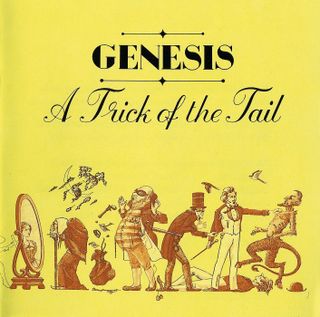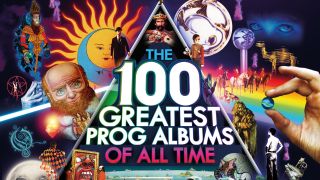Five years ago when Prog magazine (but certainly not progressive music) was in its infancy, we asked readers to vote for their 50 top prog albums of all time. Now, as we approach our 50th issue, we’ve gone back to see how the landscape has changed, asking readers and musicians to help us compile a list of the 100 greatest prog albums of all time. We were inundated with Top 10s from all over the world and we are proud to present the list for your perusal. Is it still the same, or have old favourites been ousted in place of young upstarts? And who is Number One?
40
Script For A Jester’s Tear
**MARILLION **(EMI, 1983)
We say: The debut album from Marillion, it not only set the band on the path to success, but it also crystallised the entire neo-prog gathering and gave it momentum.
You say: “Like many of these bands, it’s hard to choose just one album. Script… gets the edge because of the musical climate at the time it was made.” – Tad Spencer
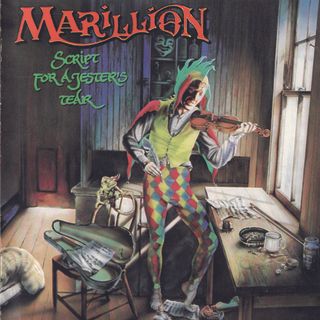
39
The Whirlwind
**TRANSATLANTIC **(InsideOut, 2009)
We say: The third album from Transatlantic brought the foursome’s finest attributes to the fore. It’s essentially one track, divided into a diverse series of movements.
You say: “One 70-plus-minute masterpiece. A great achievement and a great step forward in epic prog compositions. Like a symphony, this piece starts with a proper overture and then proceeds to develop the many and varied themes before climaxing with yet another perfect storm.” - John Moffitt
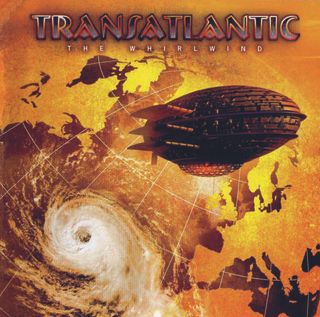
38
English Electric: Full Power
**BIG BIG TRAIN **(GEP, 2013)
We say: Big Big Train released this double album as two separate records. Part One came out in 2012, with Part Two the next year. It adds up to some of the most enchanting and rigorous music on any recent albums.
You say: “The most perfectly crafted, inspired and engaging double album of tremendous songs of the new prog generation. It’s full of supremely interesting playing and clever lyrics.” – David Vickers
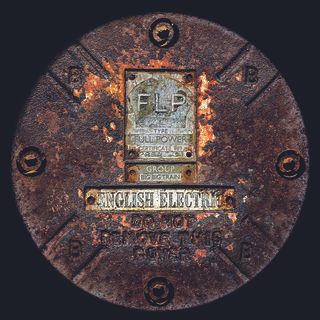
37
Meddle
**PINK FLOYD **(Harvest, 1971)
We say: Pink Floyd’s 1971 album was a genuine band collaboration. Much of it was born from spontaneity, and the epic Echoes is a masterpiece.
You say: “Containing one of the best prog instrumentals and another classic prog epic, but balanced with quirky songs like Seamus and San Tropez, this album was a slap to the face of conventionalism.” – Tony Entrekin
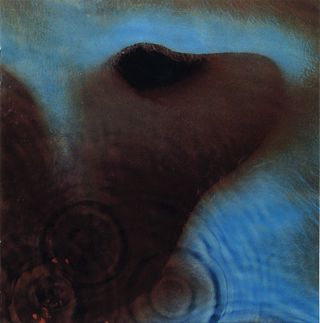
36
Blackwater Park
**OPETH **(Music For Nations, 2001)
We say: Blackwater Park was Opeth’s watershed album, marking a firm step away from extreme metal towards more progressive inclinations. Co-produced by Steven Wilson, it set the tone for what the band have done since.
You say: “Ethereal and brooding, this album shows that prog can be crushingly heavy and still be sophisticated.” – Regan Fox
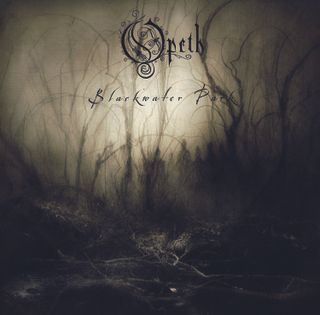
35
In The Land Of Grey And Pink
**CARAVAN **(Deram, 1971)
We say: Still considered to be their best work. It has all their musical attributes honed to a fine focus, plus the underlying humour that’s endeared them to so many.
You say: “Often hidden underneath The Dark Side Of The Moon, this album is a perfect slice of the warmth and whimsy in classic British prog. The organ solos on this album make it what it is.” – Ian James
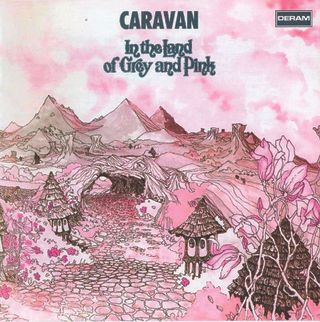
34
Bridge Across Forever
**TRANSATLANTIC **(InsideOut, 2001)
We say: Released in 2001, this was progressive rock supergroup Transatlantic’s second album. Each member of the band contributed to the compositions, and the lengthy pieces allow the musicianship to truly breathe.
You say: “The opening and closing tracks from this album are enough to put it in my Top 10 list. Neal Morse is my favourite vocalist, and his voice fits perfectly with the band. The title track is a shorter melody, about five minutes, and it’s a wonderful acoustic ballad. Mike Portnoy’s crazy drumming makes this high up on my list of best prog albums. Stranger In Your Soul is also one of the most-played songs on my iPhone. I never get tired of this album!” – Fredrik Klepper Eriksen
33
Lateralus
**TOOL **(Volcano Entertainment, 2001)
We say: Tool’s third album saw them redefine the notion of progressive music for a raft of younger bands. This was art-rock without any frontiers or self-interest, and the music itself represented the band’s far-reaching philosophy.
You say: “At the darker end of the spectrum, this band really explode with energy and creativity.” – Jeroen Henstra
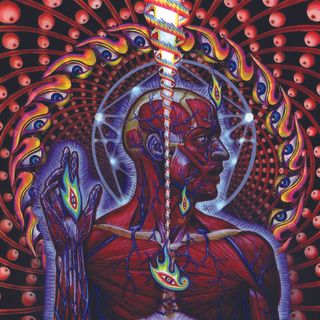
32
The Yes Album
**YES **(Atlantic, 1971)
We say: Steve Howe made his Yes debut on this 1971 album. It’s the record that broke the band and gave us such timeless songs as Yours Is No Disgrace and Starship Trooper.
You say: “Whereas Floyd took seven albums to get to their defining work of genius on The Dark Side…, Yes managed it on their third. The track list includes many of their best-remembered and still-performed songs. For me, it beats Fragile on that basis – and it came first!”** – Chris Tucker**

31
Music Inspired By The Snow Goose
**CAMEL **(Gama/Decca, 1975)
We say: Camel based this 1975 album on Paul Gallico’s World War II novel The Snow Goose. The band scrapped the idea of using lyrics based on the book, going instead for instrumental passages – which was an evocative and inspired move.
You say: “The perfect marriage of rock and classical music, tireless melodies that I never tire of, and the album that introduced me to progressive rock.” – Paul Millington
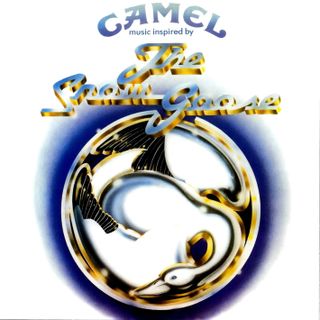
30
Larks’ Tongues In Aspic
**KING CRIMSON **(Island, 1973)
We say: King Crimson’s fifth album Larks’ Tongues In Aspic saw them introduce different sounds, such as sheet metal and mbira. It marked a transition as the band began exhaustively reaching beyond their jazz-rock influences.
You say: “The best Crimson album of the 1970s, which introduced both Bill Bruford and John Wetton into the band to stunning effect. Bookended by the title track, split into two parts, there’s plenty of free-form jazz-rockery, which at times borders on heavy metal, but there are some good melodies as well. Book Of Saturday has a wistful, romantic feel, which is quite refreshing for Fripp and co, and the balance of light and shade, subtlety and intensity, is spot on. Way ahead of its time, and cool cover art too.” – John Stott

29
Brave
**MARILLION **(EMI, 1994)
We say: Released in 1994, this was Marillion going right back to their progressive roots, on a concept album about a lost girl trying to recall her past. It’s haunting, atmospheric and denseley textured.
You say: “An excellent progressive masterpiece, telling a complete story, as the music twists and turns with the adventure. Some wonderful moody elements, with the final section (especially Brave and The Great Escape) being one of the most evocative pieces of music I think that has ever been written. I’ve even grown to like Paper Lies!” – Charles
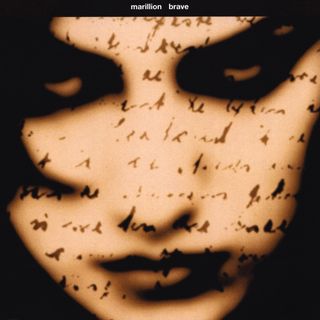
28
Tarkus
**ELP **_(Island, 1971) _
We say: Emerson, Lake & Palmer’s second album was perfectly represented by the cover artwork. Musically, it was a unique fusion of ideas and musical ideologies, from the sprawling title track to the more concise Jeremy Bender.
You say: “Baroque classic prog rock that proves that Keith Emerson was a genius. A strong, working band, and a wonderful masterpiece of 20 minutes where rock standards meet classic variations.” – Jacobo Celnik
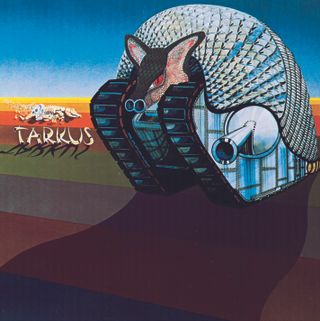
27
Deadwing
**PORCUPINE TREE **(Lava, 2005)
We say: Porcupine Tree’s 2005 album Deadwing is a ghost story based on a screenplay that was co-written by Steven Wilson and Mike Bennion. It’s a surreal, sensitive and subtle experience and a triumph for artistic instinct.
You say: “A difficult choice from Steven Wilson’s vast output, but Deadwing is PT at their most consistent. Arriving Somewhere… still defines their sound perfectly.” -** David Edwards**
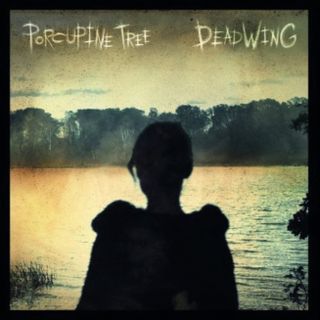
26
Going For The One
**YES **(Atlantic, 1977)
We say: The 1977 return for Yes after a three-year absence. Their eighth album had a strong collection of songs, that was arguably the band’s best in several years. A firm response to the changing music scene.
You say: “From the opening notes of the title track to the lush keyboards of Awaken, it’s a glorious ride.”** – Kevin Stephenson**

25
Images And Words
**DREAM THEATER **(Atco, 1992)
We say: Three years after their debut, Dream Theater returned with their second album Images And Words. The success of Pull Me Under in particular laid the foundations for the success to come.
You say: “This album is where it all came together. With a singer who reaches high and has a Bruce Dickinson kinda layering, plus a Neil Peart-infused drummer, and bass and guitar shredders, John Myung and John Petrucci wrote some technical songs with tricky time signatures and took it all to a new level with that metal edge.” – Nick Kuhl
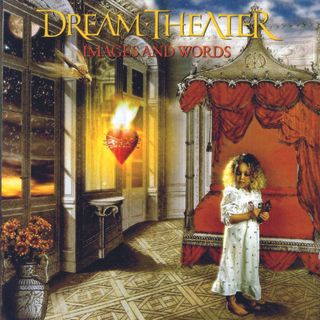
24
Pawn Hearts
**VAN DER GRAAF GENERATOR **(Charisma, 1971)
We say: The fourth album from Van Der Graaf Generator, this was originally going to be a double album. Sadly it was eventually reduced in length to this single record with A Plague Of Lighthouse Keepers an absolute Van Der Graaf Generator gem.
You say: “The darker side of prog. Peter Hammill (still) has one of the great voices of prog, or indeed any genre.” – Mark Harding

23
Hemispheres
**RUSH **(Mercury, 1978)
We say: The 1978 album from Rush represents the end of the fantasy and sci-fi imagery for the band. Cygnus X-1 Book II: Hemispheres is the conclusion of a story that began at the end of A Farewell To Kings.
You say: “Hemispheres is the quintessential Rush album. 2112 has amazing highs – dare I say higher than Hemispheres. However, the lows do sometimes get a lot lower. Hemispheres is totally consistent throughout and showcases everything that Rush do best. The virtuosity is mind-boggling, the vocals have to be heard to be believed, the conceptual work is very thoughtful, and La Villa Strangiato is, quite simply put, the best instrumental they ever did.” - Tristan Zaba
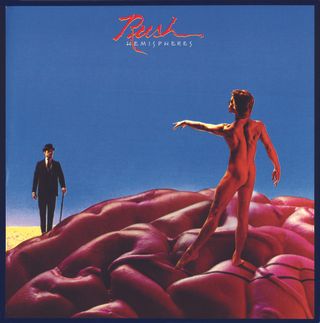
22
Tales From Topographic Oceans
**YES **(Atlantic, 1973)
We say: Yes’ 1973 double album is seen by some as overindulgent. But with a concept based on Jon Anderson’s understanding of selected Hindu scriptures, it’s now considered to feature some of Yes’ finest, most lovingly crafted moments.
You say: “When I first heard it I was transfixed not only by the music but also by the cover – the little pictures of lanes disappearing into the mist fired my imagination, as did the music itself for me, as a 14-year-old. I haven’t tired of playing it now, nearly 40 years later.” – Terry Johnson

21
A Trick Of The Tail
**GENESIS **(Charisma, 1976)
We say: The first Genesis album following Peter Gabriel’s departure, this 1976 release is stuffed with brilliantly observed songs, proving the band could more than cope with the loss of their frontman.
You say: “Such an underrated album – it may be the best symphonic/eclectic prog album of all time. No waste, no filler, good production values. Every track is five stars.”** – Andrew Korty**
